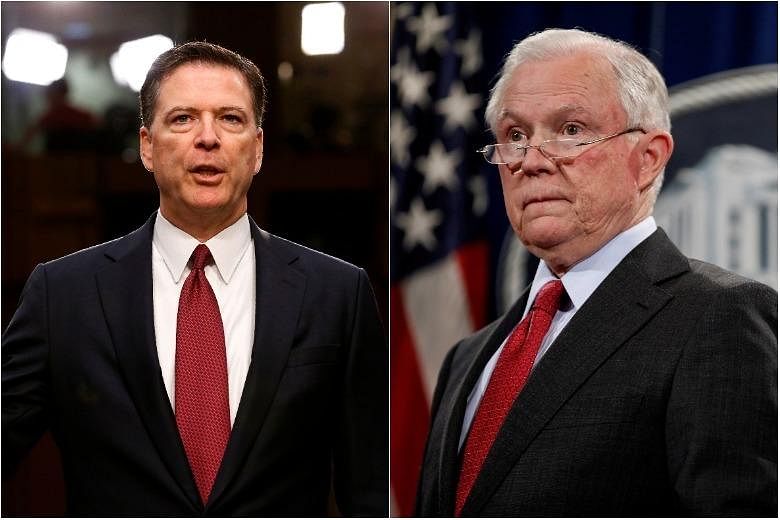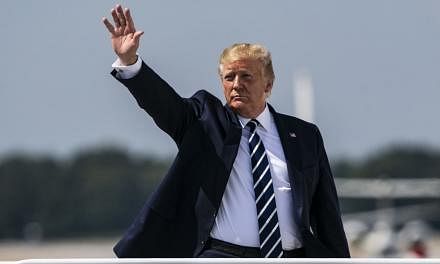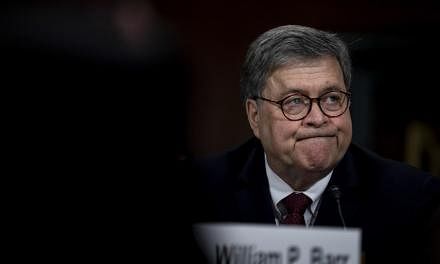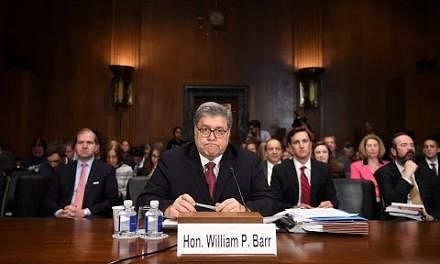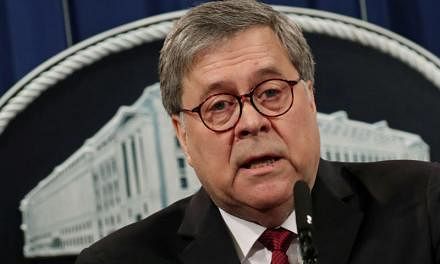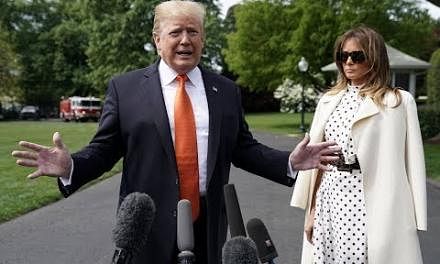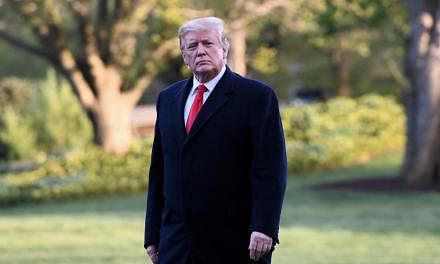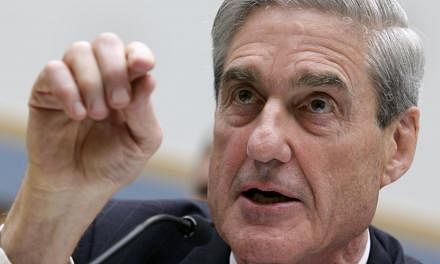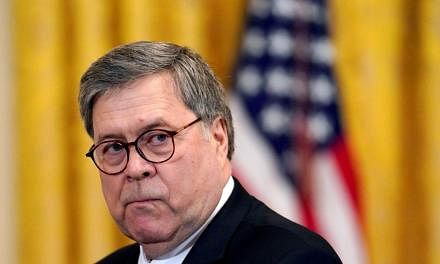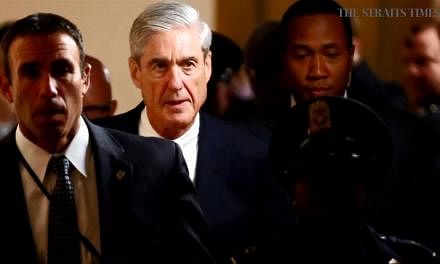WASHINGTON (NYTIMES) - US Attorney General Jeff Sessions was questioned for several hours last week as part of the special counsel investigation, and former FBI Director James Comey was interviewed by the office last year, it was revealed on Tuesday (Jan 23).
The interview with Sessions marked the first time that investigators for special counsel Robert Mueller are known to have questioned a member of President Donald Trump's Cabinet.
The interview with Comey focused on a series of memos he wrote about his interactions with Trump that unnerved Comey, according to two people briefed on the meeting. In one memo, Comey said that Trump had asked him to end the FBI's investigation into former National Security Adviser Michael Flynn.
After the president's request was revealed publicly, Deputy Attorney General Rod Rosenstein appointed Mueller as the special counsel to lead the Russia investigation and examine whether the president obstructed justice.
The disclosure about Comey's interview came hours after Justice Department spokeswoman Sarah Isgur Flores confirmed that the interview with Sessions occurred. Sessions was accompanied by longtime Washington lawyer Chuck Cooper to the interview.
The attorney general announced in March that he had recused himself from all matters related to the 2016 election, including the Russia inquiry. The disclosure came after it was revealed that Sessions had not told Congress that he met twice with the Russian ambassador to the United States at the time, Sergey I. Kislyak, during the campaign.
Sessions, an early supporter of Trump's presidential run, had been among a small group of senior campaign and administration officials whom Mueller had been expected to interview.
Papadopoulos pleaded guilty in October to lying to federal authorities about the nature of his contacts with the Russians and agreed to cooperate with the special counsel's office.
As attorney general, Sessions was deeply involved in firing Comey, and the president has repeatedly criticised Sessions publicly and privately for recusing himself from the Russia investigation.
When Trump learned in March that Sessions was considering whether to recuse himself, the president had the White House's top lawyer, Don McGahn, lobby Sessions to remain in charge of the Russia investigation.
Sessions instead followed the guidance of career prosecutors at the Justice Department, who advised him that he should not be involved with the investigation. When Trump was told of this, the president erupted in anger, saying he needed an attorney general to protect him.
After Mueller was appointed in May, Trump again erupted at Sessions and Sessions offered to resign. Several days later, Trump rejected Sessions' offer.
Trump insisted to reporters in the Oval Office on Tuesday afternoon that he was not troubled that Sessions had spoken to Mueller's investigators.
"No, not at all," Trump said.
The president was also asked whether Christopher Wray, the director of the FBI who replaced Comey, had threatened to resign because Trump and Sessions were pressuring him to clear the bureau of loyalists to Comey, as reported by the website Axios late Monday.
"He didn't at all," Trump said of Wray. Asked again, the president added: "He did not even a little bit. Nope. He's going to do a good job."
Wray's tenure has been fraught as the president has repeatedly fanned suspicion about whether the FBI's work is politically motivated. But he stopped short of threatening to quit, a person familiar with the events said.
Wray told Sessions that he needed to move at his own pace to make changes within the FBI, and that if the president and the attorney general wanted replacements made more quickly, someone else would have to do it, the person said.
Two weeks ago, Mueller subpoenaed Trump's former chief strategist, Stephen Bannon, to testify before a grand jury. Mueller is expected to forgo the grand jury appearance for now and will instead have his investigators interview Bannon in the coming weeks.
